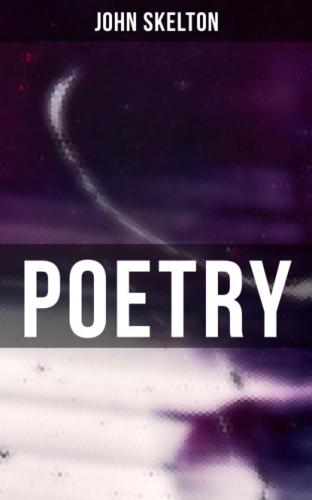Other pieces might be mentioned.
MSS.
Of the death of the noble prince, Kynge Edwarde the forth. In a vol. belonging to Miss Richardson Currer, which has furnished a stanza hitherto unprinted (vol. i. 1).
Vpon the doulourus dethe and muche lamentable chaunce of the most honorable Erle of Northumberlande. MS. Reg. 18 D ii. fol. 165 (vol. i. 6).
Manerly Margery Mylk and Ale. Fairfax MS.—Add. MSS. (Brit. Mus.) 5465, fol. 109 (vol. i. 28).
Poems against Garnesche. MS. Harl. 367, fol. 101. Now for the first time printed (vol. i. 116).
“Wofully araid,” &c. Fairfax MS.—Add. MSS. 5465, fol. 76 and fol. 86 (Brit. Mus.): and MS. copy in a very old hand on the fly-leaves of Boetius de Discip. Schol. cum notabili commento, Daventrie, 1496, 4to (in the collection of the late Mr. Heber), which has supplied several stanzas hitherto unprinted (vol. i. 141).
“I, liber, et propera, regem tu pronus adora,” &c. MS. C.C.C.—No. ccccxxxii. of Nasmith’s Catal. p. 400 (vol. i. 147).
“Salve plus decies quam sunt momenta dierum,” &c. Add. MSS. (Brit. Mus.) 4787, fol. 224 (vol. i. 177).
Colyn Cloute. MS. Harl. 2252, fol. 147 (vol. i. 311).—In MS. Lansdown 762, fol. 75, is a fragment of this poem, “The profecy of Skelton” (vol. i. 329).
Garlande of Laurell. MS. Cott. Vit. E X. fol. 200; very imperfect (vol. i. 361).
Speke, Parrot. MS. Harl. 2252, fol. 133, which has supplied much now for the first time printed (vol. ii. 1).
Diodorus Siculus translated into English [by Skelton poet-laureat]. MS. C.C.C.—No. ccclvii. of Nasmith’s Catal. p. 362.
For the following account of this MS. I am indebted to Mr. Thomas Wright:—
“MS. Corp. Chr. Camb. No. 357.
At the head of the first folio—‘Interpretatio Skeltoni poetæ Laureati,’ written in a different hand from the MS. (by Nasmith said to be by Archb. Parker himself) over something which has been erased, but which seems to have been ‘Prohemye of Poggius.’
At the end of this preface is written in the same hand as MS. ‘Thus endeth the prohemye of Poggius.’ fol. 2 verso.
At fol. 3 begins ‘The prohemy of Diodorus thauctour.’ This ends at fol. 7 thus—
¶ ‘Now we wyll enforce to begynne our processe historyall. quod Skelton.
¶ Here endeth the prohemy of all the hole processe.’
The words ‘quod Skelton’ are written in rather a different hand, and with different ink, but apparently contemporary. I think it not impossible that they may have been added by the original hand at another time.
It is imperfect at the end: but on a leaf bound up with it is written in a much later hand (perhaps by Parker), ‘Hec charta de industria vacua relicta est, ut occasio daretur juveni in litteris exercitato aggrediendi translationem historiæ que hic diminuta est, ut sic humeri sui vires experiatur quid ferre valeant, quidve recusent, tum cognoscet quid hic translator prestiterit, fortassis non ita facile in hoc genere a multis superandus.’ ”
Tanner (Biblioth. p. 676. ed. 1748) mentions the following two pieces as extant in his day among the MSS. of Lincoln Cathedral Library (see Memoir, pp. xxi, xxiii.)—
Methodos Skeltonidis laureati, sc. Præcepta quædam moralia Henrico principi, postea Henr. viii, missa, Dat. apud Eltham A.D. MDI. Principium deest.
Carmen ad principem, quando insignitus erat ducis Ebor. titulo. Pr. “Si quid habes, mea Musa.”
MSS. OF PIECES ATTRIBUTED TO SKELTON.
Vox Populi, vox Dei. MS. 2567 Cambridge Public Library. MS. Harl. 367. fol. 130 (see vol. ii. 400).
The Image of Ipocrysy. MS. Lansdown 794 (see vol. ii. 413).
Other pieces might be mentioned.
APPENDIX III.
EXTRACTS FROM PIECES WHICH ARE WRITTEN IN, OR WHICH CONTAIN EXAMPLES OF, THE METRE CALLED SKELTONICAL.
EXAMPLES
OF
THE METRE CALLED SKELTONICAL.
The Genealogye of Heresye. Compyled by Ponce Pantolabus. Imprynted at London In Pater noster rowe. At the signe of our ladye pytye [some copies, our fadyr Pyte] By Johan Redman. Ad imprimendum solum, 1542: another edition was printed by Robert Wyer: vide Typograph. Antiq. iii. 59, 182. ed. Dibdin (the size of them not mentioned). The author was John Huntingdon.
These editions I have not seen: the whole of the tract, however, seems to be quoted in A mysterye of inyquyte contayned within the heretycall Genealogye of Ponce Pantolabus, is here both dysclosed & confuted By Johan Bale An. M.D.XLII. 12mo, Geneva, 1545, from which I subjoin the following passages:
“Blynde obstynacye
Begate heresye,
By a myschaunce,
Of dame ignoraunce.
Heresye begate
Stryfe and debate.
Debate and ambycyon
Begate supersticyon.
Supersticion playne
Begate disdayne.
Dysdayne of trowthe
Begate slowthe.
Slowthe & sluggyshnesse
Begate wylfulnesse.
Wylfulnesse, verelye
Nygh cosyne to heresye,
Begate myschefe,
Father of Wyclefe,
Which ded bringe inne
His grandfather synne.
After this brother
Came forth an other;
His name to discusse,
Menne called him Husse;
He and his cumpanye
Began in Germanye.
And after that
Came in a gnat
Of the same kynde,
Whose sowle is blynde;
His name you shall here,
Menne call him Luthere.
He by his meane
Hath bannyshed cleane
Out of that coste
The Holye Ghoste,
And hath brought inne
